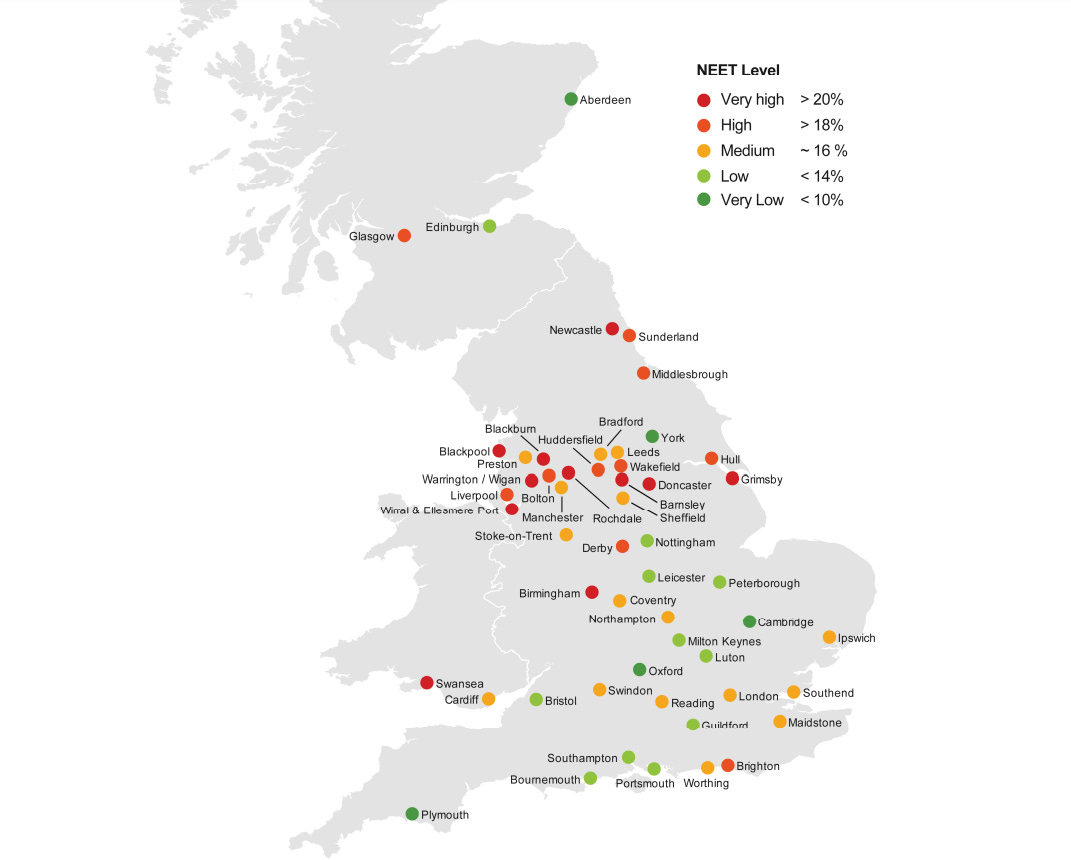Hello!
Thank you for joining me, I’m so glad you’re here.
Today I sent over my last CIPD (HR qualification) assignment to be marked. I started my CIPD journey absolutely ages ago, on an apprenticeship in a previous company, but then wasn’t able to bring it with me in my next employer. After a bit of saving, I was able to self-fund and have been working on this for a year and a bit.
I’m conscious that most people get their CIPD done much earlier in their career, but I’ve simply not been financially able to invest until I took the plunge, and I’ve not had an employer willing to fund as people sometimes do.
I wouldn’t say that I’ve grown as an HR professional through the qualification. Certainly not through the “click and read” self-service learning my provider puts on. It’s been good to reflect on my experiences and put them in my answers, and in fact as I was finishing off the last assignment (about leadership training and the effects of good leaders within organisations) I was able to bring my new role into the answer, talking about the challenges of a mixed white and blue collar workplace and how that changes the way leaders drive change.
I’m not academic - I never have been. I dislike writing out contrived answers, making sure to hit all the points in the marking guide. But I’ve (almost!) made it through, and have learnt a lot about myself and how I like to develop. Spoilers: it’s not through online training!!
A few years ago when I was working in widening participation in higher education, one of the challenges we faced was this low mood apathy in towns where not much is going on. In rural places like Suffolk, the lack of investment means that there aren’t many jobs on offer, and everything is a bit rubbish anyway, so why even bother developing skills when it’ll all be for nothing?
In neighbouring Norfolk, Great Yarmouth is a great example of a rural town left to rot, with the locals slowly losing motivation as it goes down:
This matters, because even in those under-invested towns, young people will be told about all the things they can do with their futures, and some will make the decision to move away and go to university, some will go and find local work or apprenticeships, some will inevitably become NEET (Not in Education, Employment or Training).
Unsurprisingly, the levels of NEET tend to be worse in poorer places [pdf]:
It stands to reason that the places where there is less opportunity will have fewer opportunities for young people to take up their first job, and receive training.
And the rarest of all opportunities - apprenticeships - are almost impossible to find in these areas.
With the growth in schools actually speaking to students about apprenticeships, as well as the improvement in awareness from people like parents and form tutors, more young people [FE News] are considering the option. But there simply aren’t enough opportunities available, especially in certain parts of the country.
On the recruiting side of apprenticeships, it can really be hit and miss whether you get a healthy number of quality candidates. Even when I recruited in Cambridge, surrounded by good schools, in some cases I struggled to scrape together two candidates to be interviewed at all. It takes a lot of effort to recruit apprentices as you have to be engaged with local schools, put the vacancy where young people will find it, like on the Gov website (which is HORRENDOUS to use), as well as putting it in the same places like Indeed. It needs a whole different strategy to normal recruitment.
Chris Webb’s [LinkedIn] great newsletter last week linked to a UCAS report [UCAS] on apprenticeships that has some really hard-hitting points. They say that in order to keep up with the growth the UK needs to keep moving, over half a million more opportunities for school leavers will need to be created between now and 2030. There simply aren’t enough employers jumping in and creating opportunities.
Then came the kicker:
Access is another key barrier. Three in five would-be apprentices didn’t pursue the route because they couldn’t find an opportunity in their local area, and those from lower socio-economic backgrounds were less likely to have support during the often-complex apprenticeship application process. When we look at degree opportunities, just 12 percent of starts in the under-19 age category come from the areas of greatest deprivation, and over 29 percent come from the least deprived areas.
Apprenticeships were meant to be this great opportunity to give to those who couldn’t access university. But with the scarcity of opportunities comes increased competition, and while us recruiters are plugging in one-way video interviews and elaborate assessment days without any standard support to those who may not have the confidence of someone with privilege, we’re making things worse.
But let’s go back to that quote. Three in five applicants didn’t pursue apprenticeships because they couldn’t find anything locally.
To a certain extent, I think that apprentice applicants should be encouraged to move away to access the right opportunities, just like university students do. But as I mentioned only recently, the average salaries for apprentices haven’t kept up with the salaries for graduates, and if we’re to keep paying apprentices the absolute minimum (minimum wage for apprentices as of 1st April 2024 is £6.40 an hour) then we can’t expect anyone to be living away from home. Well, without relying on parents (apprenticeships were meant to make things fairer, so if this is the case then it’s benefiting the privileged again) or racking up loads of debt (when the main selling point of apprenticeships is the lack of debt).
The bottom line is that we employers need to step up and invest more in entry-level talent, and encourage more regional businesses to take them on too. Otherwise, the levels of NEETs will rise, the young people with skills will leave to towns with more opportunity, and our rural areas will sink down even further.
Links
I’ve been watching the Japanese early careers market with interest over the last year. Following decades of employees having “jobs for life” and never leaving, the tide is turning and graduates are leaving their roles within three years [NHK]. Alongside this, with the aging population, there simply aren’t enough workers to drive the economy and they’re having to (very begrudgingly) employ foreign graduates into businesses to meet demands [YouTube].
As a graduate of Japanese, I went on the JET Programme, a competitive opportunity bringing grads from all around the world to live in rural Japanese towns, giving us either local government or teaching jobs (but not into businesses). Following the 2011 earthquake, after two years in Japan, I changed my mind and wanted to leave instead of staying there forever as planned. But had I stayed there, my options for employment would have been teaching or translation, both of which I have done and neither of which I enjoy as much as what I do now.
With the talent market putting pressure on businesses to be a little less racist…I mean improve their working culture and allow diversity in their workforce, it might open up the opportunity to take all I’ve learnt and apply it back in Japan.
As a bonus for making your way through this mini storytime, here’s a photo of me on the morning of my JET Programme interview, which I did completely in Japanese.
A few weeks ago, I linked to a video from an Instagram creator called Zoe Bread who visited an office following an invitation for a cup of tea on the back of a shampoo bottle. Well, Zoe is at it again, and this time took the Innocent Smoothie offer of a nice chat, as offered on their bottles. It doesn’t go quite as well, and is a good lesson of what happens if the brand team aren’t aligned with other parts of the business!
OK, to finish today, I’m going to explain a trending meme that will be great if you are on the careers advisor side of things.
So ages ago, a young woman named Lily Kate made a TikTok using the “I’m a _____, I ______” trend, but this time the theme was that as she isn’t a feminist, she is able to do things like wear dresses, accept men opening doors for her, and also cook.
The “I’m not a feminist, I can actually cook” line has been remixed HUNDREDS of times by women saying “I’m a feminist, watch me cook” then doing amazing STEM jobs. (Sidenote: I am assuming through context that “watch me cook” is gen z speak for “watch me do something awesome”, but admittedly I hadn’t come across it until this trend).
SO, if you want lots of free videos of women in STEM, this is a brilliant trend to follow. I have collected up for you the following TikToks:
And if you want a little more sass, there’s the “how hard can it be, boys do it” trend which is also pretty good for visibility of women in male-dominated fields.
Hope you enjoyed today’s newsletter. If you have thoughts on apprenticeships in rural areas please do come chat with me about it!
Until next week,
Charlotte







